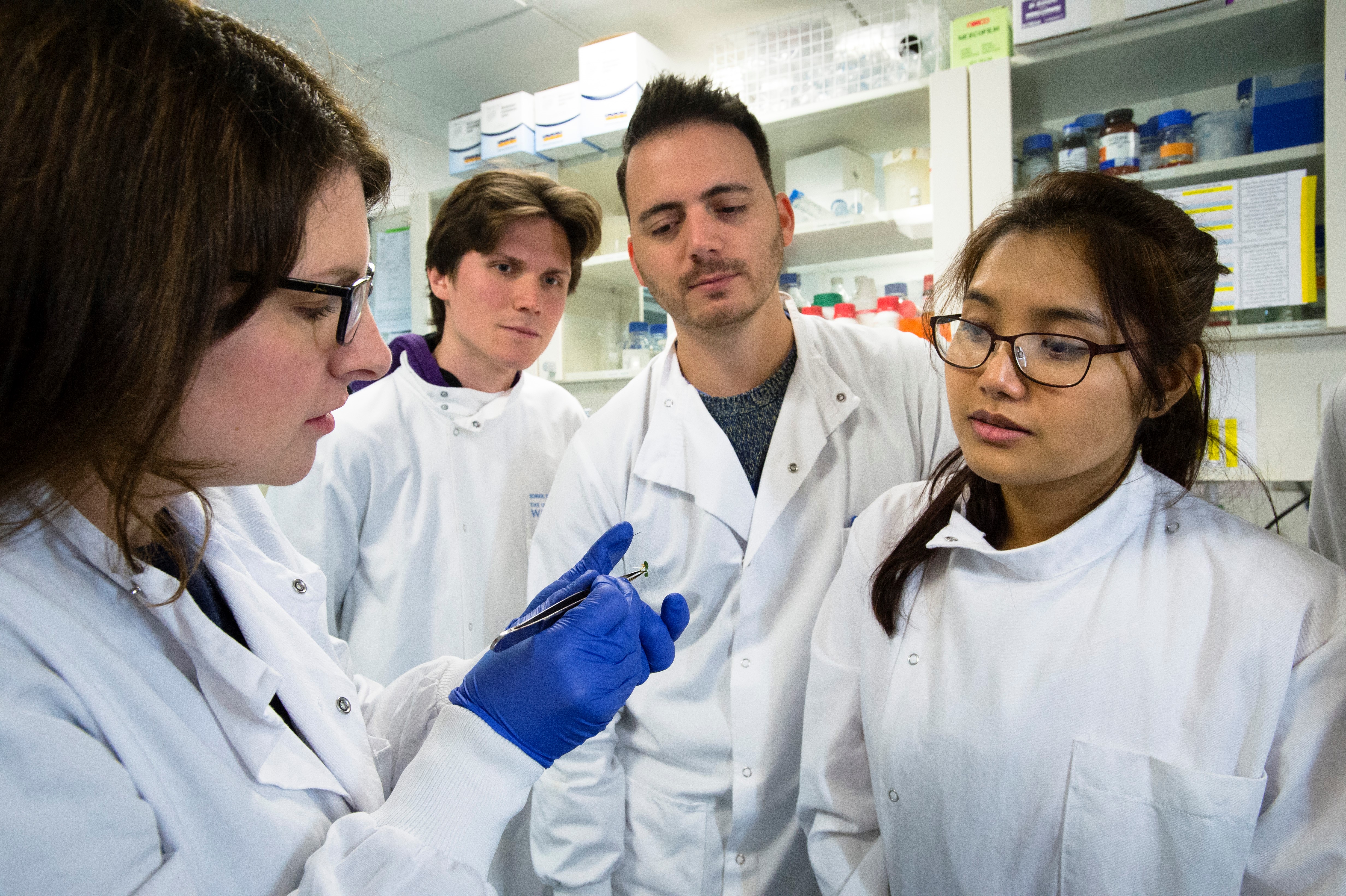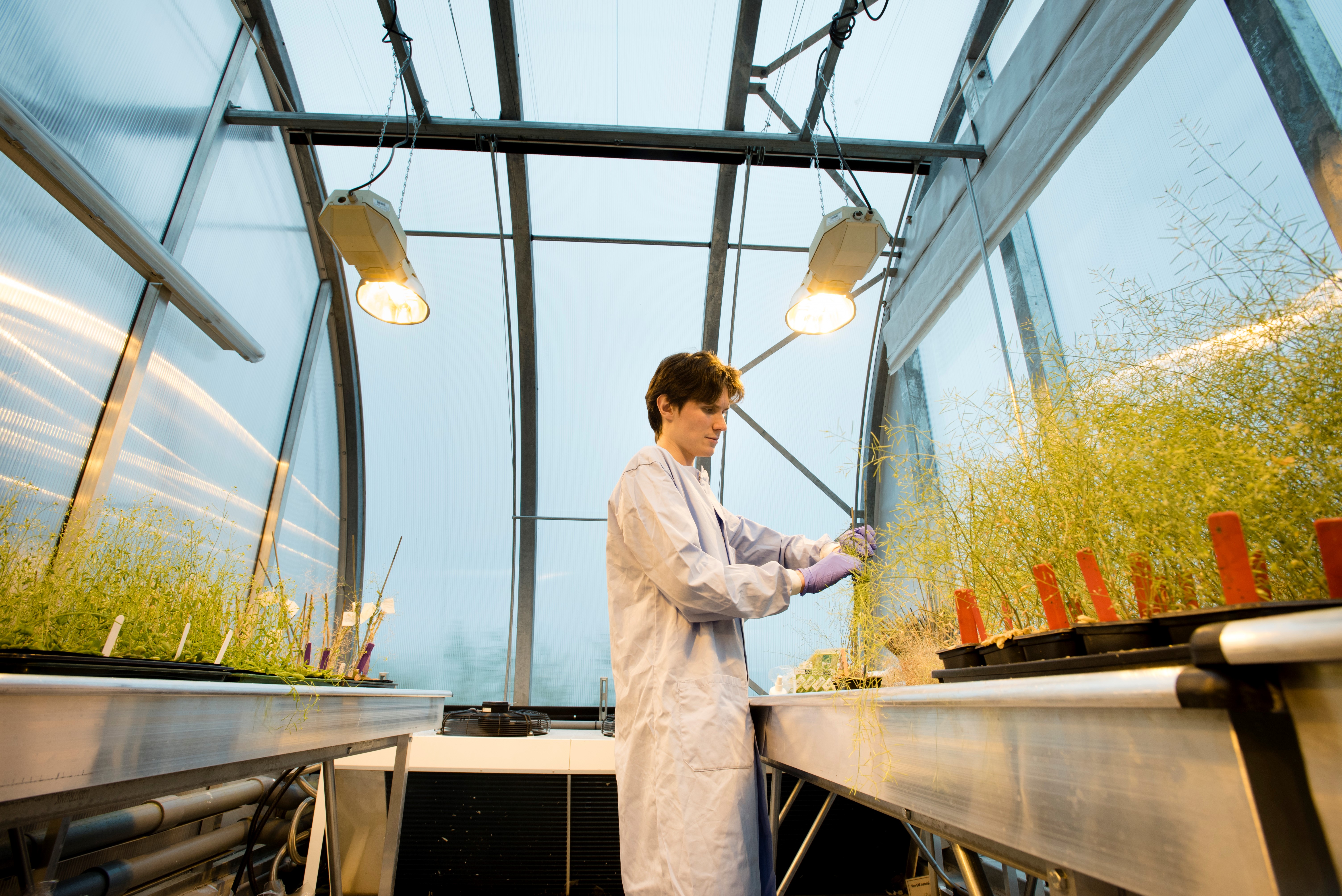An interview with Miriam Gifford
We're aspiring to do better for our local surroundings, for our people and for our planet through teaching and research. We spoke to Life Scientist Dr Miriam Gifford who researches plant root systems at Warwick.
November 2015

How does your research and teaching at Warwick relate to sustainability?
All my research relates to sustainability. I am a plant scientist and I research how plants perceive and respond to nitrogen in the soil. Making a typical nitrogen fertiliser that farmers apply to their crops is a very energy intensive process, the Haber–Bosch process. If we can reduce the amount of nitrogen fertilizer farmers need to apply to their crops, then this will significantly reduce the amount of energy we spend. This would mean that crop production becomes more sustainable - cheaper for the farmer and less energy-intensive.
Here at Life Sciences a lot of our research feeds into our teaching. We do translate our findings and the students help academics out on projects – so teaching and research are quite joined up from undergraduate projects up to master’s level and PhD research.
Part of my research is related to social and agricultural policy, which is something Warwick’s had a long-standing interest in. My specific research is finding out how plant roots change their architecture and shape in response to nitrogen. Legumes like peas and beans are able to work with the bacteria in the soil to fix nitrogen, so they do the difficult job themselves. The questions we address are: why don’t all plants interact with nitrogen-fixing bacteria, and can we re-engineer plants to do so?
Do you collaborate with any other departments?
We have a lot of collaboration, particularly with the Warwick Systems Biology and Warwick Integrative Synthetic Biology centres. We also collaborate with the Department of Mathematics, Computer Science and, more recently, Engineering. If you think of all the genes and molecules in plants, they’re like big systems. We’re trying to modify plants by pushing the networks within the plant to do one thing or another or actually reengineer them using gene editing, which is becoming more and more popular as a method.
 How important is it to engage with the public about this research?
How important is it to engage with the public about this research?
In Life Sciences, we have a module called Biosciences and Society which encourages students to think about the ethics of synthetic biology. All the plant scientists are interested in engaging with the public on the perception of GM. I’ve recently been asked to go into a school to talk to sixth formers specifically about food security and and encourage them to think about both scientific and ethical issues around GM and gene editing. I’m very keen to promote this science and challenge false information about biosafety.
There was a news story in the media recently about a young girl with leukaemia and doctors managed to ‘fix’ her cells with gene editing. She essentially had her white blood cells genetically engineered which were then able to help her body fight off its cancer.
We use the same methods in our research labs, but people can get a bit uneasy when this same technology is applied to the food we eat. It’s partly a perception issue not helped by the media, 20 years ago, when researchers were not as engaged. Now we do a lot more to engage the public and explain our research. For example, I’m on a Sense about Science panel where anyone can email or tweet in a question about plant science, and an academic or researcher will answer them - a great way to engage with the public.
What’s the future of research in your field?
What we’re trying to do is move from understanding processes in the lab to actually translating our work to addressing important challenges. In academia we’re interested in fundamental things, but we’re working on making a nice bridge to the applied side because we want to improve crops and sustainability. It’s important to get companies interested to help us bridge that gap. We need to develop business models or concepts with enough data that companies see these discoveries as worth investing in, so we could get some of our discoveries from the lab and out into the world.
If you could change one thing that would improve the sustainability agenda, what would it be?
I would say sometimes it’s difficult to match up our research with day to day food issues that people experience, so I’d have a more open forum for matching up plant research with real problems. In the shops we should be getting used to using produce that’s seasonal. It’s not always bad to have less choice, we can learn to understand more about where food comes from, from it’s seasonality, and seasonal produce tastes better. This would make things more sustainable and allow us more scope, in the research lab, to actually change things that are important.
